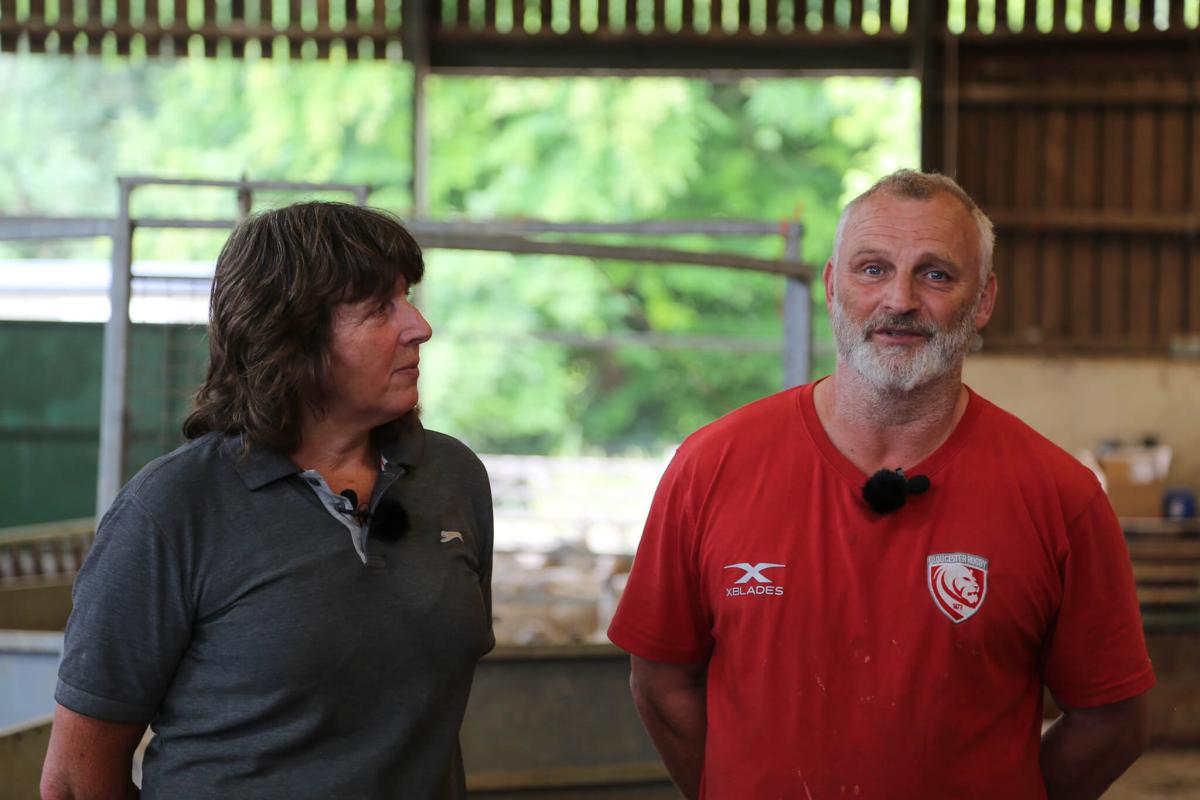
Managing internal parasites is one of the most critical aspects of sheep health and productivity, but with the growing challenge of anthelmintic resistance, we must shift to smarter, more sustainable worming strategies. At Overbury Estate, located in the heart of the Cotswolds, contract shepherds Sam and Shirley, together with sheep vet Philippa Page and support from animal health specialists like StowAg, are taking steps to consider responsible worm control.
Regenerative farming with sheep
Overbury Estate runs around 1,050 ewes across a diverse landscape. The team works closely within a regenerative farming system, incorporating cover crops to benefit both sheep and arable land.
The cornerstone of Overbury’s worming approach is targeted treatment. Instead of routine blanket worming, they base decisions on need. Lambs are grouped and only treated when necessary, based on:
- Faecal Egg Counts (FECs)
- Daily liveweight gains
- Visual health assessments
- Grazing history and weather conditions
As Philippa Page explains, “Faecal counts are part of the picture, not the whole picture. It’s about combining that data with knowledge of how sheep are performing and what the conditions have been like.”
This multi-pronged monitoring allows the team to reduce unnecessary wormer use, slowing the development of resistance while still ensuring strong lamb growth rates.
Quarantine protocols for new stock
When sheep are brought onto the farm, they are not simply turned out to graze. Instead, Overbury implements a strict quarantine process. New arrivals receive three different wormers (from each wormer group) to ensure a comprehensive clear-out and minimise the risk of introducing resistant parasites.
After six weeks, a follow-up drench is administered to tackle any immature worms that may have survived. This measured approach helps protect the existing flock and preserves the efficacy of wormers for the long term.
Using a wormer as part of a long-term strategy
Wormers are used thoughtfully at Overbury. They are used as a “break dose” at the end of the grazing season to eliminate any residual resistant worms and give the flock a clean slate.
At Overbury, the shepherding team works closely with vets and advisers to ensure the flock’s health is always a shared priority. “We can’t be expected to know all the scientific stuff,” Sam says. “What we do is graze, move, and handle sheep. That’s our job. But we work with Stuart and Philippa to move the flock forward. If we’re unsure, a phone call gets us back on track.”
Every farm is different, and every flock has unique challenges. But Overbury’s method shows what’s possible when worming strategies are based on observation, data, and collaboration—not habit.
By treating only when necessary, implementing robust quarantine procedures, and incorporating new actives into their system responsibly, Overbury Estate is showing that it’s entirely possible to safeguard both productivity and long-term wormer effectiveness.
